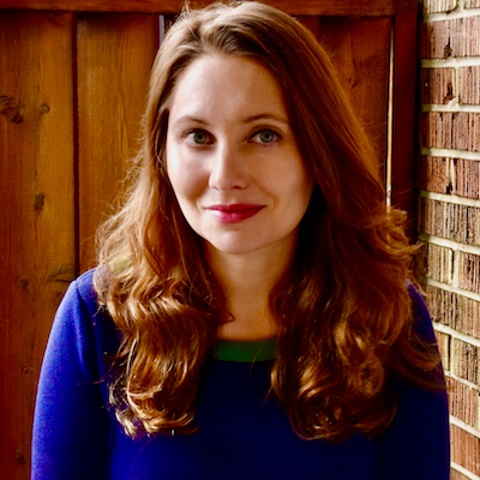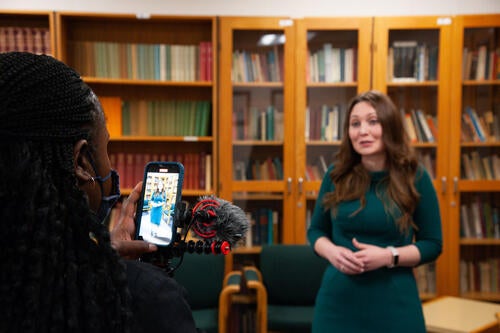Talking about complex societal issues requires trusted experts to combat disinformation
This article originally appeared in the Global Futures report.
Water Institute member Dr. Ashley Rose Mehlenbacher is the Canada Research Chair in Science, Health and Technology Communication and leading expert on how communication practices shape how people engage with scientific and technical subject matters.
The growth of online platforms has changed the way information is being shared and has led to a rise in misinformation. However, informed societies are necessary in addressing critical issues that require collective action such as pandemics and climate change. Mehlenbacher was asked how we should communicate and share knowledge to positively advance society and ensure communities thrive.
Opinion by Dr. Ashley Rose Mehlenbacher.

Sadly, this bad-faith content often spreads faster than good-faith content — often with devastating consequences.
Dr. Ashley
Rose Mehlenbacher
Professor,
Faculty
of
Arts,
Canada Research
Chair
in
Science, Health and
Technology
Communication
We can’t be experts in everything, so we need to rely on others to help us make informed decisions. It is vital for society to harness and share knowledge so that communities — and everyone in them — can thrive. How do we know who to trust when credible information is regularly undermined by disinformation, malinformation and misinformation?
A common theme I have encountered in my work in science communications and expertise is the importance of trust and communication when we talk about big issues that impact us.
It is important to understand why people’s perception of experts is changing. There are many legitimate reasons for people to distrust experts and institutions, including that they have been harmed by them. Deliberations, decisions and actions happen in already-crafted systems, so understanding how inequities have been enacted by experts and institutions is crucial.
We also see illegitimate reasons like sexism, racism, antisemitism, transphobia and other prejudices used to attack an expert's credibility. Certain groups disproportionately face online attacks for participating in the public sphere, and we need to find better ways to support them. One way to do this is to identify how different bad-faith attacks operate and build anticipatory processes, policies and reporting structures to handle those situations and support those affected.
In another vein, there are attempts to discredit legitimate experts using bad-faith critiques. Research in climate change communications shows that such tactics are used to fuel disinformation. Such tactics might use the argument that a researcher is biased because of career ambitions. There are also “purity tests” that might suggest a climate scientist who uses commercial flights is a hypocrite.

Building trust happens through how we communicate
We need to share knowledge and its limitations in a transparent manner and demonstrate an understanding of the situations and audiences involved. We saw good examples during the pandemic when public health officials explained the evolving situation, the limitations of what was currently known and the reasons why they made certain decisions.
We can also recognize and include the many varieties of expertise in our world, not just technical and scientific but also local, traditional and Indigenous knowledges. Including different types of expertise is necessary to address complex issues such as climate change.
Every day it seems the world presents us with new challenges. Now more than ever, exploring communication strategies that acknowledge and understand the complexities of expertise in its various forms is a goal worth pursuing so we can make positive changes in our world.